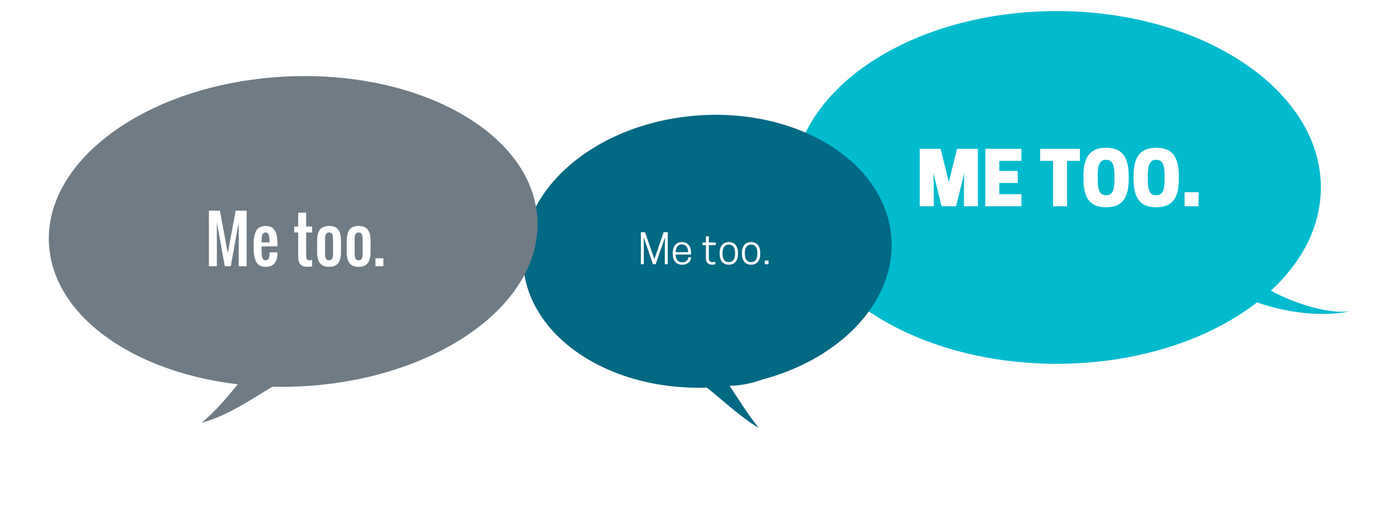The Power of #MeToo
By Kristy Trautmann
Last week, the headlines were filled with the decades-long story of film producer Harvey Weinstein’s patterns of sexual exploitation of women. The scope and scale of his predatory behavior unfolded as dozens of A-list actresses bravely broke their silence, telling strikingly similar stories of sexual harassment and assault. And the cover-up became plain: many people knew or at least suspected, and lawsuit after lawsuit ended in large settlements, each with a gag order to buy her silence.
Into this powder keg of public scrutiny, actress Alyssa Milano issued her now-famous tweet proposing to expose the shocking prevalence of sexual violence by urging women who had experienced sexual harassment or assault to share #MeToo, and a tidal wave ensued. As my Facebook feed filled with #MeToos from women representing every corner of my network, I was overcome with shifting emotions: pride at the defiance of women boldly releasing decades of secrets in their truth-telling; searing grief and anger at knowing the pain and fear behind each #MeToo; and unsettled by my own memories, some long-forgotten. Sexual harassment and assault feel like profoundly personal violations. But sexual violence is so common, so embedded in our culture, that it seems ubiquitous. Horrifyingly ordinary.
In 2016, the U.S. Equal Employment Opportunity Commission released a report on workplace sexual harassment exposing that this behavior remains troublingly persistent over 30 years despite policy change and the growth of an entire industry dedicated to compliance and training. EEOC estimates that between 25% to 85% of women have experienced sexual harassment at work; when women are presented with specific examples, rates of reported harassment go up. Despite mandatory annual trainings, very little of this harassment is formally reported. Roughly three out of four individuals who experienced harassment never even talked to a supervisor, manager or union representative about the harassing conduct, let alone filed any kind of formal complaint. It remains most common for victims of sexual harassment to try to manage it by themselves: avoiding the harasser, downplaying the seriousness of the situation, enduring it and then attempting to leave it behind. Unfortunately, victims have good reason for foregoing the formal complaint process: too often they are not believed, nothing happens or retribution occurs after reporting.
#MeToo has exposed our complicity, our willingness to take the least possible action in the face of overwhelming violation.
It’s time to expect more. To make the necessary culture change will take leadership from the top. We need principled CEOs, presidents and executive directors to ask themselves “could a Harvey Weinstein be working for me?” and admit that the answer is probably yes. Leaders can begin to change the culture by recommitting to the values the company stands for and clearly stating the behaviors that will not be tolerated. But action must follow. Organizations can add legitimacy and independence to the review process by providing an outside advocate for victims who file complaints. Companies should see to it that no employee is perceived as so indispensable that their disrespectful and abusive behaviors are tolerated.
Every one of us has a role to play. Many victims confide in someone they trust: a family member, friend or coworker. For decades, victim service agencies have been on the front lines in our community supporting survivors and working tirelessly to change the norms that allow these abuses to persist. It’s time we join them in bravely speaking out, offering steadfast support to survivors, and taking action to create the safe community we all deserve.
Survivors should know that they’re not alone, and abuse is never their fault. 24-hour hotlines are offered by victim service organizations in our region to support survivors in many ways from talking about how to deal with workplace sexual harassment to listening to accounts of any type of abuse experience. Here is a list of resources for survivors in Southwestern Pennsylvania.
Kristy Trautmann is executive director of FISA Foundation.

